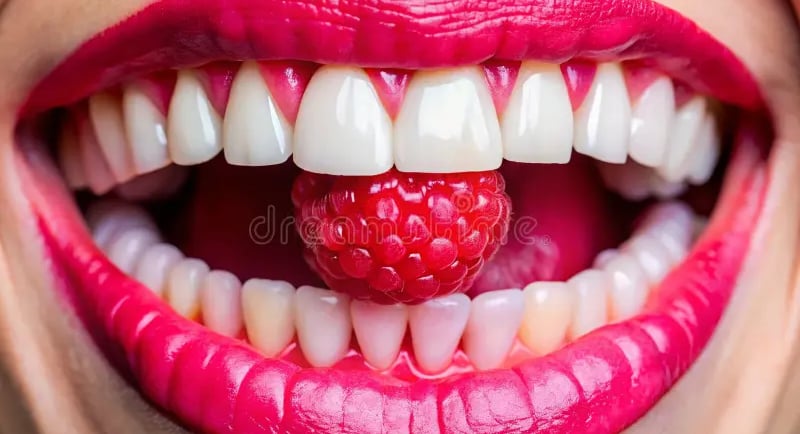Your Oral Microbiome and Brain Heailth
the Mouth Brain Axis as the new frontier to complete Health


🧬 The Oral Microbiome and Brain Health: The Mouth-Brain Axis as the New Frontier of Preventive Medicine
By Ocean of Sound Health Institute
Guided by Science | Grounded in Nature | Rooted in Regeneration
Introduction: Why Oral Health is the Gateway to Brain Resilience
In both modern medicine and traditional dentistry, oral health has long been confined to aesthetics and hygiene—cavities, plaque, and routine cleaning. However, a growing body of evidence in neurobiology, microbiome science, and systems medicine is revealing a far more profound reality: the oral cavity is a central regulator of immune homeostasis, gut health, and cognitive function. The human mouth harbors over 700 bacterial species, forming a unique microbial ecosystem that interacts continuously with the gut-brain axis, modulates the autonomic nervous system, and plays a pivotal role in the development of chronic inflammation, neurodegenerative disease, and mental health disorders. This mouth-brain axis—once overlooked—is now emerging as a foundational biomarker of whole-body health and neurological aging.
1. The Oral Microbiome: A Complex Immune-Active Ecosystem
The oral microbiome includes bacterial, viral, fungal, and archaeal populations that colonize the teeth, tongue, gums, and saliva. This microbial environment is dynamic and immune-regulatory. It facilitates mechanical digestion, mucosal immunity, nitric oxide production, and epithelial barrier integrity. When in balance, the oral microbiome protects against pathogens through colonization resistance, maintaining stable pH levels, mineral cycling, and inflammatory regulation. When disrupted—via poor oral hygiene, stress, poor diet, or overuse of antibiotics—this balance is lost, leading to oral dysbiosis, which can ignite systemic consequences far beyond the mouth. Key microbial species and their roles include:
Streptococcus salivarius: A commensal, nitric oxide-producing bacterium associated with oral immune tolerance.
Porphyromonas gingivalis: A gram-negative keystone pathogen in periodontitis, known to produce gingipains—proteolytic enzymes that degrade neural tissue and cross the blood-brain barrier (BBB).
Fusobacterium nucleatum: Associated with periodontal disease and colorectal cancer via toll-like receptor (TLR4) signaling and NF-κB activation.
2. The Mouth-Brain Axis: A Neurological and Immunological Interface
Neurobiologists like Dr. Andrew Huberman (Stanford University) emphasize that oral inflammation is not localized—it affects the entire central nervous system (CNS) through multiple channels. These include:
Direct neuronal pathways, such as the trigeminal nerve, which links the oral cavity to key areas of the brainstem.
Systemic circulation, where bacterial endotoxins such as lipopolysaccharides (LPS) travel through blood, breach the blood-brain barrier, and activate microglia, the resident immune cells of the CNS.
Cytokine signaling, where chronic low-grade inflammation in the mouth induces systemic elevations of IL-1β, IL-6, TNF-α, all of which have been implicated in cognitive decline, depression, and neurodegenerative disorders like Alzheimer’s.
A landmark study by Dominy et al. (2019) published in Science Advances identified the presence of P. gingivalis DNA and gingipains in post-mortem brain tissue of Alzheimer’s patients. Treatment with a gingipain inhibitor in animal models significantly reduced neuroinflammation and preserved neuronal integrity. Furthermore, Liu et al. (2020) demonstrated in murine models that chronic periodontitis leads to elevated hippocampal cytokines and impaired learning and memory—directly linking oral dysbiosis with neural degeneration.
3. The Oral-Gut-Brain Superhighway: Trilateral Microbial Signaling
The gut-brain axis has received considerable attention in recent years, but few realize that the oral microbiome precedes and influences gut microbial colonization. Every day, humans swallow 1 to 1.5 liters of saliva, transferring oral bacteria into the gastrointestinal tract. Oral dysbiosis leads to gut dysbiosis, which in turn affects neurotransmitter synthesis (especially GABA, serotonin, and dopamine), vagus nerve signaling, and immune surveillance. This tri-directional interaction forms what we now understand as the oral-gut-brain axis.
Oral pathogens like F. nucleatum have been isolated in intestinal mucosa of patients with IBD and colon cancer.
Nitric oxide production—key to vasodilation, mood regulation, and immune defense—is dependent on nitrate-reducing oral bacteria. Use of antibacterial mouthwash can reduce nitric oxide production by up to 90%, impairing cognitive and cardiovascular function
4. Clinical Applications in Functional Dentistry
Dr. Staci Whitman, founder of Happi Health and a pioneer in biological pediatric dentistry, integrates oral health with systemic and neurological outcomes. Her clinical observations suggest that oral development and hygiene in children directly impact cognitive development, behavior, and immune resilience.
Addressing mouth breathing and tongue posture to restore nasal nitric oxide regulation and sleep quality.
Supporting oral remineralization with hydroxyapatite instead of fluoride—shown to enhance enamel and dentin without systemic toxicity.
Nutritional protocols based on ancestral diets rich in vitamin K2, D3, magnesium, and omega-3 fatty acids, which support both jaw development and microbiome integrity.
Whitman’s approach echoes the foundational work of Dr. Weston A. Price, who documented the correlation between craniofacial structure, nutrition, and resistance to degenerative disease across indigenous populations.
5. Nutrition and the Neuro-Oral Axis
Nutrition is the epigenetic language that shapes the microbiome—and the mouth is the first site of this conversation. Diets high in refined sugar, processed foods, and acidic beverages foster acidogenic, biofilm-forming pathogens and feed low-grade inflammation. Conversely, diets rich in polyphenols, fiber, and trace minerals nourish commensals and protect oral and neural tissue. Here you find some recommended nutrients and their clinical relevance: Vitamin K2 (MK-7)which directs calcium into bones/teeth and away from arteries and soft tissues , Magnesium & D3 as essential for proper calcium metabolism and immune function and Coenzyme Q10: found in high concentration in gingival tissue; protects against oxidative stress. Omega-3s (EPA/DHA) reduces microglial activation and systemic inflammation. Zinc: inhibits plaque formation and supports taste/smell receptors and Polyphenols (green tea, berries, cacao) which inhibit bacterial adhesion and biofilm formation Not to overlook the power of Probiotics: Oral strains like Streptococcus salivarius K12 reduce gingivitis and halitosis
6. A Daily Oral-Brain Optimization Protocol
Implementing a consistent oral routine aligned with neurological health is essential. Below is a suggested science-backed protocol: Morning:
Tongue scraping to remove endotoxins and stimulate digestion
Brushing with hydroxyapatite toothpaste
1 glass of structured, mineral-rich water with lemon
Nasal breathing practice (3–5 min)
Midday:
Chew xylitol gum (stimulates salivation, pH balance)
Polyphenol-rich lunch (e.g., greens, EVOO, fermented foods)
Evening:
Oil pulling with cold-pressed sesame or coconut oil (10–15 mins)
Flossing with natural thread
Light vagal stimulation before bed (humming, breathwork)
Reshape Your Relationship with the Mouth, Brain, and Food
Your mouth is not separate from your brain.
Your teeth are not separate from your nervous system.
The microbes in your saliva carry signals to your immune system, your memory, and your mitochondria.
True regenerative health begins in the smallest ecosystems—your microbiome. Shifting your relationship with your mouth, your food, and your breath means shifting the entire internal dialogue of your biology.
At Ocean of Sound Health Institute, we invite you to transform your understanding of self-care from cosmetic to cellular and rebuild resilience through science-backed, DNA-informed oral care. At the Ocean of Sound Health Institute you learn how structured water, sound, and nutritional intelligence can awaken the body’s innate healing code
You are not a separate set of parts. You are a network.
Let’s honor the intelligence of your biology—starting with the mouth.
